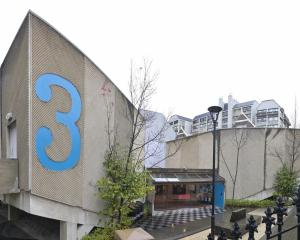High rates increases could be watered down but the relief would be temporary, Central Otago ratepayers were warned last week.
At the beginning of the Central Otago District Council’s meeting, next’s year’s rates increase averaged 23.4%. Councillors shaved nearly 4% from that by rejecting some grant requests from its community boards.
Chief financial officer Paul Morris then offered a way to dramatically reduce rates by not fully funding depreciation on water assets.
Three Waters depreciation was costing the council $9.3million, which paid for all renewals of drinking, storm and wastewater assets, he said.
All growth and increased levels of service were separate.
Councillors’ preference to transfer water services to an independent entity, a council-controlled organisation (CCO), which would run the services, would reduce the rates increase as the 23.4% included all water costs, Mr Morris said.
Because of that the council had a "one-off" opportunity to reduce rates by not fully funding water depreciation, Mr Morris said.
The only other way to get a similar reduction would be to look at not funding whole activities, such as pools and tourism, because to get down to an 11% rates rise would take cost reductions of $4.6m.
The debt would not be repaid in the two years assuming it, and the water assets, would be transferred to the CCO, he said.
"This is a one-off opportunity that you have to relieve rates burden. Know that the major cause of that is being moved on to another entity."
Funding depreciation at 50% from rates, and the balance from debt, would achieve an average 11% rates increase next year, falling each year to under 7% in three years. Reducing to 100% would give about a 3% average increase but that was not something he was comfortable with, he said.
Central Otago Mayor Tamah Alley said in past conversations Mr Morris had indicated continuing to fund depreciation at 100% was best practice.
Mr Morris agreed but said the councillors had to go to the community and tell them they could live with the rates rise.
"Considering last time, I think you said, 18[%] was an aberration and it wouldn’t happen again. You’ve got to be able to pull the levers to deliver on that.
"If you weren’t getting rid of Three Waters ... you wouldn’t even contemplate this. This is a one-off opportunity that you have to relieve rates burden knowing that the major cause of that is being moved to another entity."
It was suggested the water charge be dropped but it would come back in two years’ time as the new entity would have to have enough income to maintain its ability to borrow, he said.
Cr Neil Gillespie said people had to know water cost increases were still coming.
"Ultimately, we know where it ends up. You’re going to get a big increase."
Ms Alley agreed the costs would go up in the future but said the option recognised New Zealand was in a recession and might not be next year.












